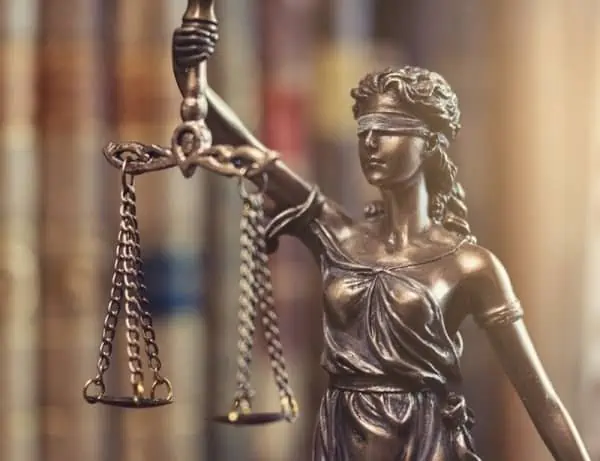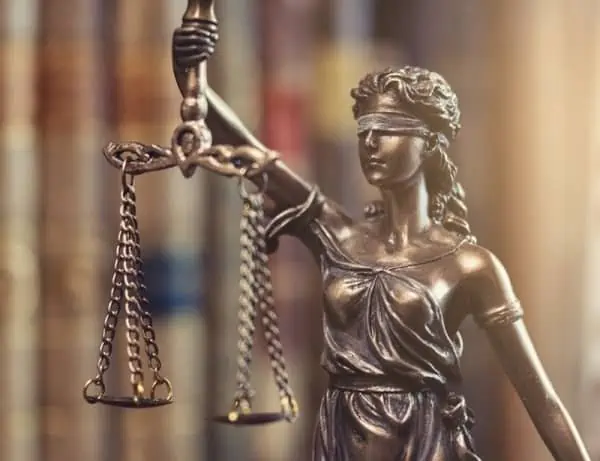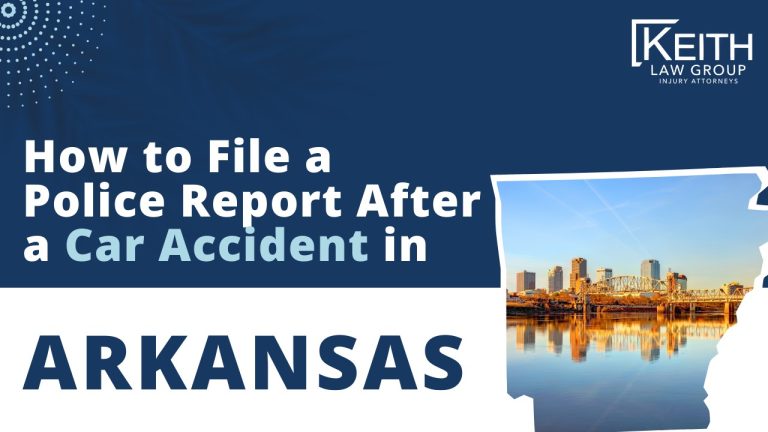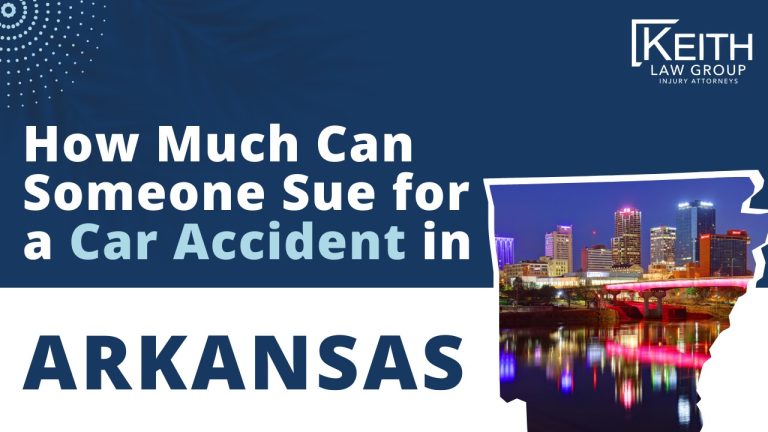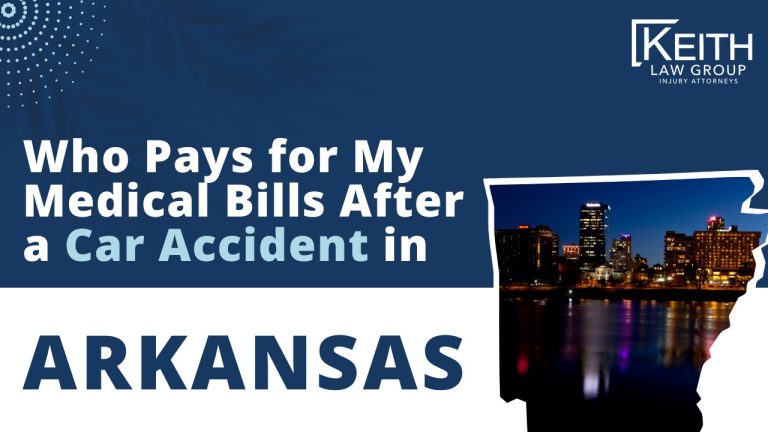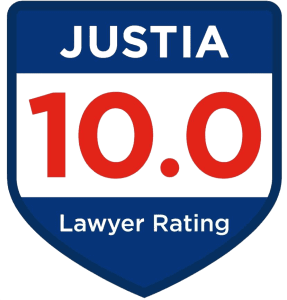- Published: June 19th, 2023
- Last Updated: July 14th, 2025

Attorney Sean T. Keith has been a personal injury lawyer for 30+ years, a nationally recognized Top 100 Trial Lawyer, and top car accident lawyer & motor vehicle accident lawyer in Arkansas.
Legally Reviewed
This article has been written and reviewed for legal accuracy and clarity by the team of writers and attorneys at Keith Law Group and is as accurate as possible. This content should not be taken as legal advice from an attorney. If you would like to learn more about our owner and experienced injury lawyer, Sean T. Keith, you can do so here.
Fact-Checked
Keith Law Group does everything possible to make sure the information in this article is up to date and accurate. If you need specific legal advice about your case, contact us. This article should not be taken as advice from an attorney.
Sean Keith's Accollades & Practice Areas He Specializes In
- Over $20 Million recovered in Medical Device Injury Lawsuits.
- Over $13 Million recovered in Car Accident Lawsuits and other Motor Vehicle Accident Lawsuits.
- Over $100 Million recovered in total on behalf of clients.
- Sean represents clients in cases involving personal injuries, car accidents, motorcycle accidents, truck accidents, wrongful death, slip and falls, nursing home abuse cases, nursing home elopement cases, and more.
Intro to Arkansas Hit and Run Accidents
Did you know that hit and run car accidents are a growing problem in Arkansas?
These incidents leave victims dealing with not only physical injuries but also emotional trauma and financial burdens.
Collision coverage, uninsured motorist property damage, serious personal injuries, injury protection, and other coverages are crucial for anyone affected by a hit and run crash to understand their legal options.
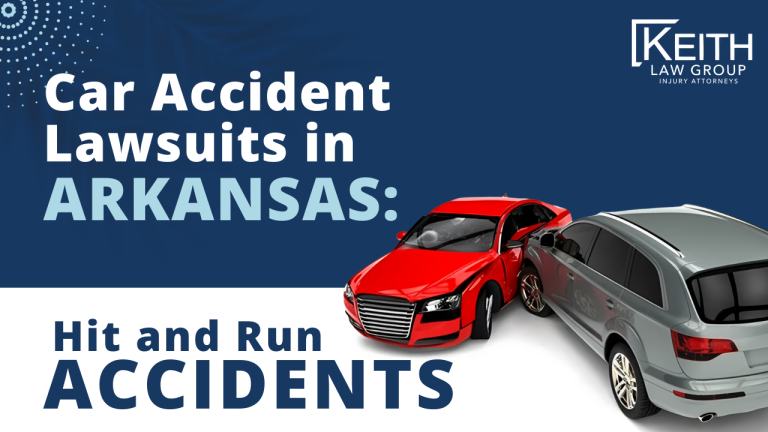
In the aftermath of a car crash, it can be tough to navigate the complex world of insurance claims, collision coverage, and legal procedures.
But knowing your rights is essential, especially when the at-fault driver has fled the scene of the accident.
So, let’s dive into the prevalence of these accidents in Arkansas, explore their impact on victims, and discuss why understanding your legal options and uninsured motorist property damage coverages is vital for moving injured person forward after such a devastating event.
Table of Contents
Steps to Take in Hit and Run Situations in Arkansas
Ensure Personal Safety
First things first, make sure you’re safe after a hit and run car accident.
It’s essential to have collision coverage, uninsured motorist property damage, and personal injury protection in case of a crash.
Insurance coverage aside, here are the steps to follow to ensure your own personal safety:
- Check for injuries after a run car crash or run accident: If you or your passengers are hurt, call 911 immediately for personal injury assistance and remember to inform your collision coverage provider.
- Move to a safe location: If possible, move your vehicle off the road after a run car crash or collision with a parked car to avoid further run crash accidents.
- Stay calm during a run car crash: Take deep breaths and stay focused on the situation at hand, whether it’s a run accident or dealing with State Farm in various states.
Document the Scene
Once you’ve ensured everyone’s safety in a hit and run driver or car crash or a hit and run driver or accident, it’s time to gather evidence.
Here’s what you should do with State Farm in the states:
- Take photos or videos of:
- Your vehicle’s damage
- The accident scene
- Any debris or skid marks on the road
- Write down important details such as:
- Time and location of the accident
- Weather conditions
- Description of the fleeing vehicle (make, model, color)
- License plate number (if possible)
- Look for witnesses:
- Ask nearby people if they saw anything
- Get their contact information for future reference
Notify Authorities
It’s crucial to report a hit and run car acc to the state farm authorities in your respective states as soon as possible.
Here are some steps to follow:
- Call 911 or your local non-emergency police number.
- Provide them with all relevant information about the incident.
- Request an official police report for your run accident or crash – this will be helpful when filing a state farm insurance claim in the United States.
In Arkansas, a state in the US, it is required by law that drivers motor vehicles involved in a crash resulting in injury or property damage must stop at the scene and exchange information with other parties involved.
Fleeing from an accident to flee the scene of an accident can result in criminal charges.
By following these steps in hit and run crash situations, you’ll be better prepared to handle this stressful event while protecting yourself legally and financially.
Remember that staying calm, documenting everything thoroughly, and contacting the authorities promptly are crucial in dealing with a hit and run driver or car crash.
So, if you ever find yourself in such a situation, keep these guidelines in mind to navigate through it effectively.
Gathering Witness Information and Contacting an Arkansas Car Accident Lawyer
Collecting Contact Information from Witnesses
In a hit and run car crash, witnesses can be invaluable to your case.
They can provide crucial details about steps to take after a car accident.
It’s essential to collect contact information from any witnesses present at the scene of the accident, including:
- Name
- Phone number
- Address (if possible)
- Email address
Having this information will allow you or your attorney to reach out to these individuals later on if their testimony is needed for your run accident case.
Importance of Witness Statements
Witness statements play a critical role in hit and run car accident cases for several reasons:
- Corroborating Your Account: A witness statement can help validate your version of events, reinforcing the credibility of your claim.
- Identifying the At-Fault Party: Witnesses may have seen details about the other driver or their vehicle that can lead to identifying them.
- Establishing Liability: In some circumstances, witness statements might help establish who was at fault for the accident.
Given these benefits, it’s clear that gathering witness information should be a top priority after a hit and run car accident to support your car accident insurance claims.
Seeking Legal Advice from a Specialized Attorney
After collecting witness information, it’s crucial to seek legal advice from an experienced Arkansas car accident lawyer.
They can offer valuable assistance by:
- Reviewing your case and determining if you have a valid claim after a run accident
- Advising you on relevant laws and how they apply to your specific circumstances
- Helping gather additional evidence (such as surveillance footage) that may strengthen your case
- Negotiating with insurance agents on your behalf
- Representing you in court if necessary
To find the right attorney for your needs, consider asking friends or family members for recommendations or searching online reviews.
Questions to Ask When Choosing an Attorney
When contacting potential law firms, ask the following questions to help you determine if they’re a good fit for your case:
- How much experience do you have with hit and run car accident cases?
- What is your success rate in these types of cases?
- Can you provide references from past clients who had similar circumstances?
- How will you communicate with me throughout the process?
By taking the time to gather witness information and consult with an experienced Arkansas car and hit and run accident attorney first, you’ll be better equipped to navigate the legal process and seek justice for your hit and run car accident case.
Remember, every detail counts, so don’t hesitate to ask for help when needed!
Arkansas Insurance Claims and Coverage for Hit-and-Run Incidents
Types of Insurance Coverage
Hit and run car accidents can be a nightmare, but having the right insurance coverage can make the process less stressful.
Knowing how to properly file a car insurance claim will increase your chances of receiving fair compensation for damages and injuries.
In Arkansas, there are several types of auto insurance coverages that can help hit-and-run victims:
- Collision coverage: Covers damages to your vehicle caused by a hit-and-run accident.
- Uninsured motorist coverage (UM): Covers bodily injury and property damage caused by an uninsured driver or in a hit-and-run incident.
- Medical payments coverage (MedPay): Helps pay for medical expenses resulting from an accident, regardless of who is at fault.
- Personal injury protection (PIP): Similar to MedPay, PIP covers medical expenses as well as lost wages and other related costs.
Filing a Claim with Your Insurance Provider
When you’re a person involved in a hit-and-run car accident, it’s crucial to take the following steps:
- Report the incident to the police immediately. They will create an official report which is necessary when filing an insurance claim.
- Contact your auto insurance provider as soon as possible to inform them about the incident.
- Provide all necessary documentation, including:
- Police report
- Photos of damages
- Medical bills
- Witness statements
- Cooperate with your insurance company during their investigation and follow their instructions.
Keep in mind that each insurance provider has its own process for handling claims, so it’s essential to stay informed about your specific policy requirements.
Time Limits for Filing Claims in Arkansas
In Arkansas, time limits exist for filing various types of claims related to car accidents:
- Property damage: You have three years from the date of the accident to file a claim against another driver or seek compensation through your own insurance policy.
- Bodily injury: You also have three years from the date of the accident to file a personal injury claim against another driver or seek compensation through your own insurance policy.
- Uninsured motorist claims: The time limit for filing an uninsured motorist claim varies depending on the specific terms of your policy. Typically, it ranges from 30 days to two years after the accident.
It’s essential to be aware of these deadlines and act promptly to ensure you receive the compensation you deserve.
However, these deadlines can vary from case to case.
Contact an attorney to discuss the details of your case so they can determine the Statute of Limitations that apply to your car accident lawsuit in Arkansas.
Understanding UMPD and Uninsured Motorist Coverage in Arkansas
What is UMPD Coverage?
Uninsured Motorist Property Damage (UMPD) coverage is a type of insurance that protects you if your vehicle gets damaged in a hit-and-run car accident or by an uninsured driver.
In Arkansas, it’s essential to understand the benefits of having uninsured motorist property damage coverage and the limits and exclusions within these coverages, especially when it comes to car accident settlements.
Benefits of Uninsured Motorist Coverage
- Financial protection: If you’re involved in an accident with an uninsured driver or a hit-and-run, uninsured motorist coverage can help cover the costs of repairing or replacing your vehicle.
- Peace of mind: Knowing that you’re protected even if the other driver doesn’t have insurance can alleviate stress and worry in the aftermath of an accident.
- Legal compliance: In some states, including Arkansas, having uninsured motorist coverage is required by law.
Limits and Exclusions Within These Coverages
While uninsured motorist coverage offers valuable protection, there are some limitations and exclusions to be aware of:
- Coverage limits: UMPD coverage typically has limits on how much it will pay for property damage. These limits vary depending on your policy but may not be enough to fully cover the cost of repairing or replacing your vehicle.
- Deductibles: Like any insurance policy, UMPD coverage usually comes with a deductible – the amount you have to pay out-of-pocket before your insurance kicks in. Make sure you choose a deductible that fits your budget.
- Exclusions: Certain types of vehicles may not be eligible for UMPD coverage, such as motorcycles or commercial vehicles. This type of insurance usually won’t cover damage caused by vandalism or theft.
- Fault determination: Some policies require that fault be determined before providing UMPD benefits. This means that if you’re found to be at fault for the accident, your UMPD coverage may not apply.
- Collision coverage overlap: If you have collision coverage on your policy, it may already cover some of the same situations as UMPD. Be sure to review your policy and talk to your insurance agent about any potential overlaps.
Reporting to Your Insurance Company and the Arkansas Police
Timely Reporting is Crucial
After a hit and run car accident, it’s essential to report the incident to your insurance company and the Arkansas police as soon as possible.
The sooner you file a report, the higher your chances of receiving compensation for any damages sustained in the accident.
Here are the steps to follow for timely reporting:
- Contact your insurance agent immediately after the incident
- File a police report within 24 hours of the accident
- Notify both parties even if there are no apparent injuries or damages
Providing Accurate Details About the Incident
When reporting a hit and run car accident, it’s crucial to provide accurate details about what happened.
This information will help both your insurance company and the police in their investigations.
To provide accurate details about your car accident, follow these steps:
- Describe the location, time, and weather conditions during the incident
- Provide a description of the other vehicle involved (make, model, color)
- If possible, note down any license plate numbers or distinguishing features
- Mention any witnesses who might have seen what happened
Cooperation During Investigations
To ensure a smooth investigation process, it’s essential to cooperate with both your insurance company and law enforcement officers.
Follow these steps to ensure your full cooperation during an investigation:
- Provide all necessary documentation:
- Driver’s license
- Vehicle registration
- Proof of insurance coverage (e.g., State Farm policy number)
- Share photos of damages sustained by your parked car or motor vehicle
- Attend any required meetings with investigators or claims adjusters
- Follow up on any requests for additional information from either party
Keep in mind that hit-and-run accidents can be classified as either misdemeanors or felonies depending on factors such as property damage severity or whether anyone was injured.
By cooperating with investigators, you increase your chances of bringing justice to those responsible for these reckless actions.
A hit-and-run car accident can leave you feeling frustrated and overwhelmed; however, by promptly reporting it to your car insurance, company and the Arkansas police, you increase your chances of receiving compensation for damages and holding the responsible motorist accountable.
A car accident lawsuit may be necessary if the at-fault party’s insurance refuses to compensate you fairly for your damages and injuries.
Consequences of a Hit-and-Run Accident: Arkansas Penalties and Legal Ramifications
Criminal Charges for Offenders
Hit-and-run car accidents are no joke.
In Arkansas, if you’re the offender, you could face some serious criminal charges.
These might include:
- Misdemeanor hit-and-run: This occurs when there’s only property damage involved. Penalties can include fines and even jail time.
- Felony hit: When injuries or fatalities occur due to the accident, it becomes a much more severe crime. Offenders can face prison time and hefty fines.
It’s important to remember that fleeing or leaving the scene of of an accident is never a good idea.
The penalties are steep, and they’ll only get worse if you don’t own up to your actions.
Civil Lawsuits from Victims
If you’re on the other side of a hit-and-run car accident in Arkansas, you have legal options too.
As a victim, you can file a civil lawsuit against the perpetrator for damages related to:
- Medical expenses
- Lost wages
- Pain and suffering
- Property damage
In some cases, victims may also be awarded punitive damages – these are meant to punish the offender for their reckless behavior.
Impact on Driving Record
A hit-and-run conviction doesn’t just come with legal consequences; it also leaves a mark on your driving record.
Here’s what that might look like:
- Points added to your license: In Arkansas, hit-and-run convictions result in points being added to your driver’s license.
- Increased insurance premiums: With a tarnished driving record comes higher insurance costs – not ideal for anyone trying to save money.
- License suspension or revocation: Depending on the severity of the incident and your prior driving history, you could lose your license altogether.
No one wants any of these outcomes!
So if you find yourself involved in an auto accident, make sure to stick around and face the music.
Conclusion: Navigating Hit and Run Car Accidents in Arkansas
In a nutshell, dealing with the victim of a hit-and-run car accident in Arkansas involves several crucial steps.
Understanding the car accident causes can help drivers be more aware and take preventive measures.
First, make sure to flee the scene, stay calm and gather witness information.
Next, reach out to an experienced Arkansas car accident lawyer for guidance.
Understand the insurance claims process and the role of UMPD auto policy and uninsured motorist coverage in your case.
Report the same accident report the incident to both your insurance company and the Arkansas police.
Don’t forget that hit-and-run accidents have serious legal ramifications in Arkansas, so be aware of the potential penalties involved.
Lastly, take action by seeking professional advice from experts who can help you navigate this complex situation.
Frequently Asked Questions
-
What should I do immediately after a hit-and-run accident in Arkansas?
After ensuring your safety, try to gather as much information as possible about the other driver, runs the other vehicle involved (e.g., license plate number), collect contact details from witnesses, take photos of damages, and call the police to report the incident.
-
How important is it to contact an Arkansas car accident lawyer after a hit-and-run incident?
It’s essential to consult with an experienced lawyer who can guide you through the legal process, help you understand your rights, negotiate with insurance companies on your behalf, and ensure that you receive fair compensation for damages.
-
What types of insurance coverage are relevant in hit-and-run cases in Arkansas?
Uninsured Motorist Property Damage (UMPD) coverage helps pay for property damage when the at-fault or driver responsible is uninsured or cannot be identified (as in a hit-and- run hit and-run).
-
Do I need to report a hit-and-run accident to my insurance company?
Yes!
Reporting the incident promptly will help expedite any claims process and ensure that you receive the coverage and medical attention you’re entitled to.
Keep in mind that failure to report can lead to denial of your claim.
-
What are the potential legal consequences for hit-and-run drivers in Arkansas?
Hit-and-run drivers can face severe penalties in Arkansas, including fines, imprisonment, and license suspension or revocation.
The severity of these consequences depends on factors such as property damage, serious injuries sustained by victims, and prior convictions.
All Posts for the Car Accident Lawsuit Legal Guide
Practice Areas
- 3M Earplug
- Belviq
- Bladder Sling
- Camp Lejeune Water Contamination
- Defective Medical Device
- Hernia Mesh
- Hip Replacement
- NEC Infant Formula
- Medtronic Insulin Pump
- Paraquat
- Philips CPAP
- Roundup
- Talcum Powder
- Tylenol Autism & ADHD
- Zantac
- Bicycle Accidents
- Boat Accidents
- Construction Accidents
- Dog Bite
- Drug Injuries
- Electric Shock Injuries
- Nursing Home Abuse
- Nursing Home Bedsore
- Nursing Home Falls
- Nursing Home Infection
- Nursing Home Sexual Abuse
- Personal Injuries
- Premises Liability
- Slip and Fall
- Traumatic Brain Injuries
- Wrongful Death
- 3M Earplug
- Belviq
- Bladder Sling
- Camp Lejeune Water Contamination
- Defective Medical Device
- Hernia Mesh
- Hip Replacement
- NEC Infant Formula
- Medtronic Insulin Pump
- Paraquat
- Philips CPAP
- Roundup
- Talcum Powder
- Tylenol Autism & ADHD
- Zantac
- Bicycle Accidents
- Boat Accidents
- Construction Accidents
- Dog Bite
- Drug Injuries
- Electric Shock Injuries
- Nursing Home Abuse
- Nursing Home Bedsore
- Nursing Home Falls
- Nursing Home Infection
- Nursing Home Sexual Abuse
- Personal Injuries
- Premises Liability
- Slip and Fall
- Traumatic Brain Injuries
- Wrongful Death
You pay
Nothing
unless we win
Do You Have A Case?
Recent Legal Posts & Articles
Recent Legal Guides

Choose Us For Your Personal Injury Case
- Available 24/7
- No Upfront Fees
- Free Case Evaluation
- No Fees Unless We Win!

